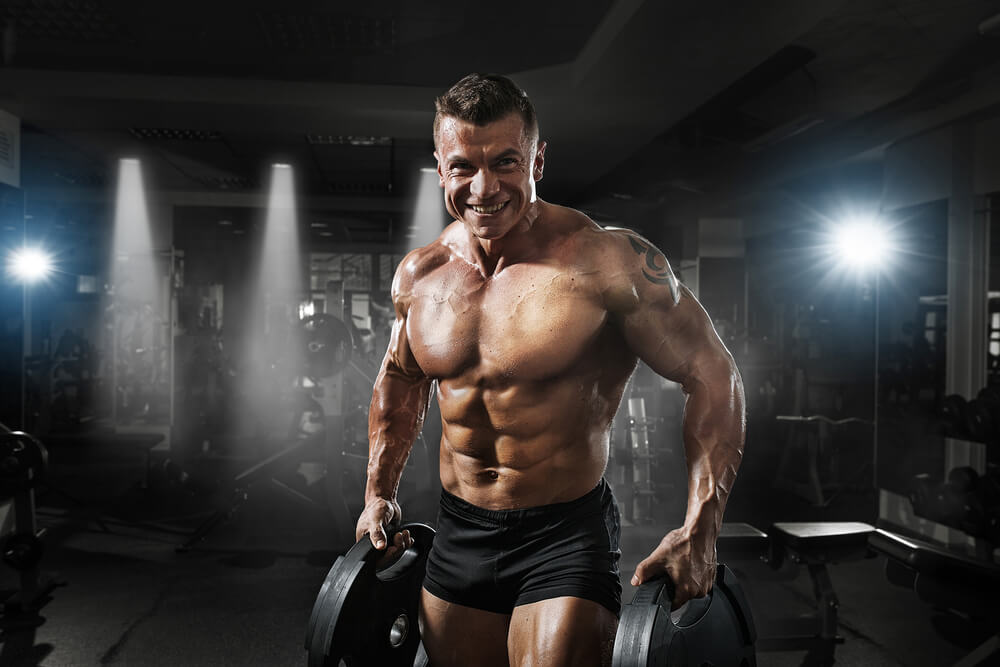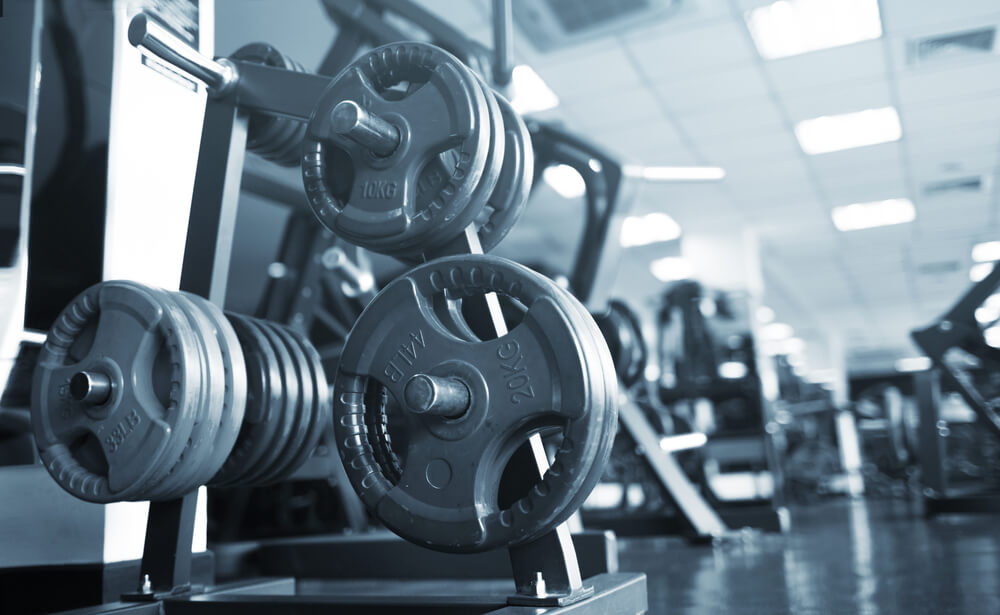
Want to gain size fast? Of course, you do. Want a size workout plan to achieve this goal? Good news! We’ve got a way to do it. And, we are more than happy to share. You’re welcome!
How do you put on size?
The answer is actually very simple. If you want to gain size, then you need to be performing the right workouts and be on a proper diet program. After all, muscles are developed through physical training, recovery, and nutrition. Let’s take a closer look at these factors. From there, we will put together a good workout for you to follow.
Rome Wasn’t Built In A Day And Neither Are Your Muscles!
When we talk about putting on size and gaining muscle fast it is not necessarily something that is to be taken literally.
Why?
The truth is that this is a process that takes months to accomplish depending on your current physique. So to start off, you need to get into the proper mindset and have the determination going into a workout plan such as this.
You have to understand this is not going to be quick and easy. Prepare to get your body ready for true development through hard work and the info being provided. Gains come to those with patience!

This Is All About Proper Weight Training For Gaining Size
The human body can undergo pretty extreme conditions and placing resistance upon it is one that we have begun to master. The common belief is that in order to build large muscles you have to lift heavy weights. This means low reps and more sets. But, you have to understand this is not exactly how it works.
For example, a powerlifter is generally a stout person that can move some serious weight around. However, they do not look very big. Muscle definition is hidden for the most part. Why? The reason for this is because heavy weight training over time does not produce muscle mass and instead only encourages strength gains. Strength gains and muscle gains are not always simultaneous.
In the beginning, heavy weight training does encourage muscle growth. But, over time, your muscles get used to your heavy weight training. It becomes a habit and, when that happens, your muscles are no longer stimulated for growth. So you can think of this as a wakeup call if you have had previous training experience. Those who are new to training should keep this in mind.
Dumbbell pressing 120 pounds for five reps is an impressive display of strength, but pressing 80 pounds for 10 to 12 reps is more beneficial for muscle gains. Think about the videos and pictures you see of bodybuilders. Usually, you see them using weight that seems low for their size. Why? The reason is because using moderate resistance and more reps is more efficient for their goal.
Don’t forget: We are talking about muscle gains and fast methods for putting on size. If you want strength gains, then, by all means, heavy weight training is for you. Note that either method is still going to strengthen your muscles and bones.
How Does This Affect Compound Lifts?
Of course, compound lifts are still beneficial because they target many muscle groups through multiple joint movements. This allows your body to be trained as a whole for the most part, as opposed to just isolating specific regions for the entire workout. However, the difference is that you need to perform more reps with lower weight.
The weight amount chosen for the resistance is similar to what we discussed. Moderate resistance is the way to go. This basically means you should be able to perform 10 to 12 reps. Percentage wise, you are looking at 70% of your max for that area. For example, if you dumbbell press 100 pounds, then you should choose 70 pounds for your workout.
Another topic to note concerns hormone production increases, especially pertaining to free testosterone. Heavier compound lifts are known for helping this increase in production to occur, but studies show that moderate high rep sets also provide anabolic benefits.

Can You Make Progress Without Weight Progression?
People often follow the age-old belief that progression is only determined through the amount of weight you move. Obviously, you are progressing if you can lift more each week or month. But, even this seems to slow down over time. Otherwise, the average gym rat would be using 300-pound dumbbells for the chest press instead of being stuck with 125 pounders.
You have to get the notion that heavy weight lifting is important for building muscle. You can alter the way your body develops muscle by making changes in areas such as tempo and range of motion. Tempo is how fast or how slow you perform an exercise for a certain amount of time or number of reps. Examples of progression using tempo is slowing down the movement, performing burnouts and also doing negatives.
Range of motion changes can include such things as moving your body differently during a lift. For example, performing the barbell squat usually ends with the person just breaking parallel and going back up. However, squatting down deep and below the parallel midline encourages different muscle usage, thus increasing the development of muscle.
You could also just add a couple more reps at the start. Those who begin doing 10 reps of an exercise need to increase it to 12 reps before doing the methods discussed. This should work to ensure you see some gains.
All three of these methods are good to incorporate into a workout program. Next, we will better define the different combo sets, burnouts, and negatives.

This Is The Info On Negatives, Burnouts And Combined Sets
All of these methods are beneficial for increasing the size of your muscles quite quickly.
Negatives are first on this list. This type of training style sees you slow down half or all of the exercise. An example would be the biceps workout preacher curls. Instead of just curling up and down, slow the movement on the downward portion to the point where it takes six to eight seconds before reaching the bottom. Then, explode back up and repeat.
Burnouts are when you perform a set to your muscle’s max potential. This could be for the purpose of doing one last fatigue at the end of your workout. Or, it could be simply to do a few sets mid workout. What you do is use a light-moderate resistance and then perform as many reps as you can. The end result is muscle fatigue at the end of each set.
Combined sets are referring to two different methods called compound sets and combined sets. Compound sets are when you perform one exercise and then immediately follow that up with another exercise for the same muscle region. For example, you could do the flat bench press followed by chest flyes. Both target the chest region of your body.
Supersets are similar but target two muscle regions instead. You perform one exercise and then follow that up with an exercise that targets an opposing muscle group. For example, biceps hammer curls followed up with triceps pulldowns on the cable machine.
Using a mix of these in different workouts will surely significantly increase your chances for gains. The following workout uses various methods with exercises in the perfect mix.

This Is The Size Workout
Are you ready to start putting on size?
If so, then let’s cover the exercise portion of a program meant to get your body nice and big. The following exercises are all to be performed with moderate resistance. That means you should be able to perform 10 to 12 reps for three or four sets as noted. The only exception is for burnouts, where you instead use a little lighter weight.
After each set you are to take a one-minute rest. Heavier weight training requires more time for rest after each set, but since this is a lower amount of resistance five minutes is not necessary.
Day 1 Is For Chest And Triceps
Exercise Sets Reps
Dumbbell Flat Bench Press x4 x10-12
Incline Neutral Grip DB Press x3 x10-12
Compound Set
Standing Cable Flye x3 x10-12
Standing Low Cable Flye x3 x10-12
Triceps Rope Pulldown x4 x12-15
Day 2 Is For Legs And Core
Exercise Sets Reps
Barbell Back Squat x4 x10 (pause reps)
Leg Press x3 x10-12
Compound Set
Stiff Legged Deadlift x3 x10-12
Leg Curl x3 x10-12
Calf Raise x4 x12-15
Compound Set
Roman Chair Leg Raise x3 x12-15
Roman Chair Knee Raise x3 x12-15
Day 3 Is For Back And Biceps
Exercise Sets Reps
Bent Over Barbell Row x4 x10-12
Lat Pulldown x3 x10-12
Superset
Seated Cable Row x3 x10-12
Dumbbell Biceps Curl x3 x10-12
Reverse Cable Flye x4 x12-15
Day 4 Is For Shoulders And Triceps
Exercise Sets Reps
Seated Neutral Dumbbell Press x4 x10-12
EZ-Bar Wide Grip Upright Row x3 x10-12
Cable Front Shoulder Raise x3 x10-12
Dumbbell Lateral Shoulder Raise x3 x10-12
Triceps Ez-Bar Pulldown x4 x10-12
Overhead Dumbbell Extension x3 x10-12
Day 5 Is For Core And Cardio
Exercise Sets Reps
Bosu Ball Plank x3 45-60 seconds
Bosu Ball Weighted Sit-Up x3 x15-20
Russian Twist w/ Medicine Ball x3 x15-20
Leg Lift x3 x15-20
Elliptical x1 20 Minutes
Stair Climber x1 x10 Minutes
Days 6 And 7 Are For Rest
Use this training program for one month before making any changes. You should notice pretty different results if all the exercises have been performed properly. After a month, you can choose to add more exercise for the large muscle groups such as chest, back, legs and shoulders.
You Will Also Need Calories And Rest
Calories are not just for energy to perform exercises and get through the day. They are also needed to support muscle mass and growth. Training without enough calorie intake means you risk the chance of losing muscle you have already earned.
This is why you see bodybuilders eating so much food, but still having little body fat. They are actually using the calories they consume, so it is fine for them to eat a fat cheeseburger with a side of cheesecake. It sounds odd, but their body uses these foods for the calories it needs to support muscle development and recovery.
Protein is the primary nutrient for this process to occur. Basically, protein is one of the three largest nutrients your body needs to survive, but also to encourage muscle recovery for growth. Muscles become torn after intense resistance training and these small muscle tears are what make us feel sore the next day. This muscle soreness can be alleviated by consuming enough nutrients, especially protein.
Your muscles need this protein to allow proper recovery to start. Nutrient timing really does not exist the way we have always been told, but it is still good to consume food at least a few hours after training. One reason is to bring your energy levels up to prevent blackouts from low carb storages.
The other reason is because your muscles are ready to repair themselves, so help them out by increasing your calorie intake, stretching and even sleeping for eight hours a night. Proper REM sleep is crucial for your hormones to keep producing in a heightened state.
Proper stretching also helps following a workout. You should perform static stretches. This is when you place a muscle under its full range of motion and then hold the movement for 30 seconds or more. This helps increase the blood flow carrying the nutrients required for recovery. The end result is quicker recovery from training.

Conclusion
If you employ all of these tips, then you should have little trouble putting on more muscle weight and size. Of course, time is of the essence. And, it’s worth noting that we all have different body types. What works for you, may not work as well for your friend or relative. Have patience and your body will grow!
By Brian Pankau, CPT
Latest posts by Terry M (see all)
- Garage Gyms - Aug 1, 2018
- Kettlebells – Why They Should Be Added To Your Routine. - Jul 24, 2018
- Weight Belts: What Are They Really For? - May 31, 2018









Excellent article!!
Absolutely love your WOW’s!!! They are always very informative and interesting.. I find your post interesting! Thanks for sharing!
[…] gym, you’ll discover (if you haven’t already), our body will plateau in terms of strength and size gains. The best way to prevent this is to switch up the kinds of lifts you do every couple of […]